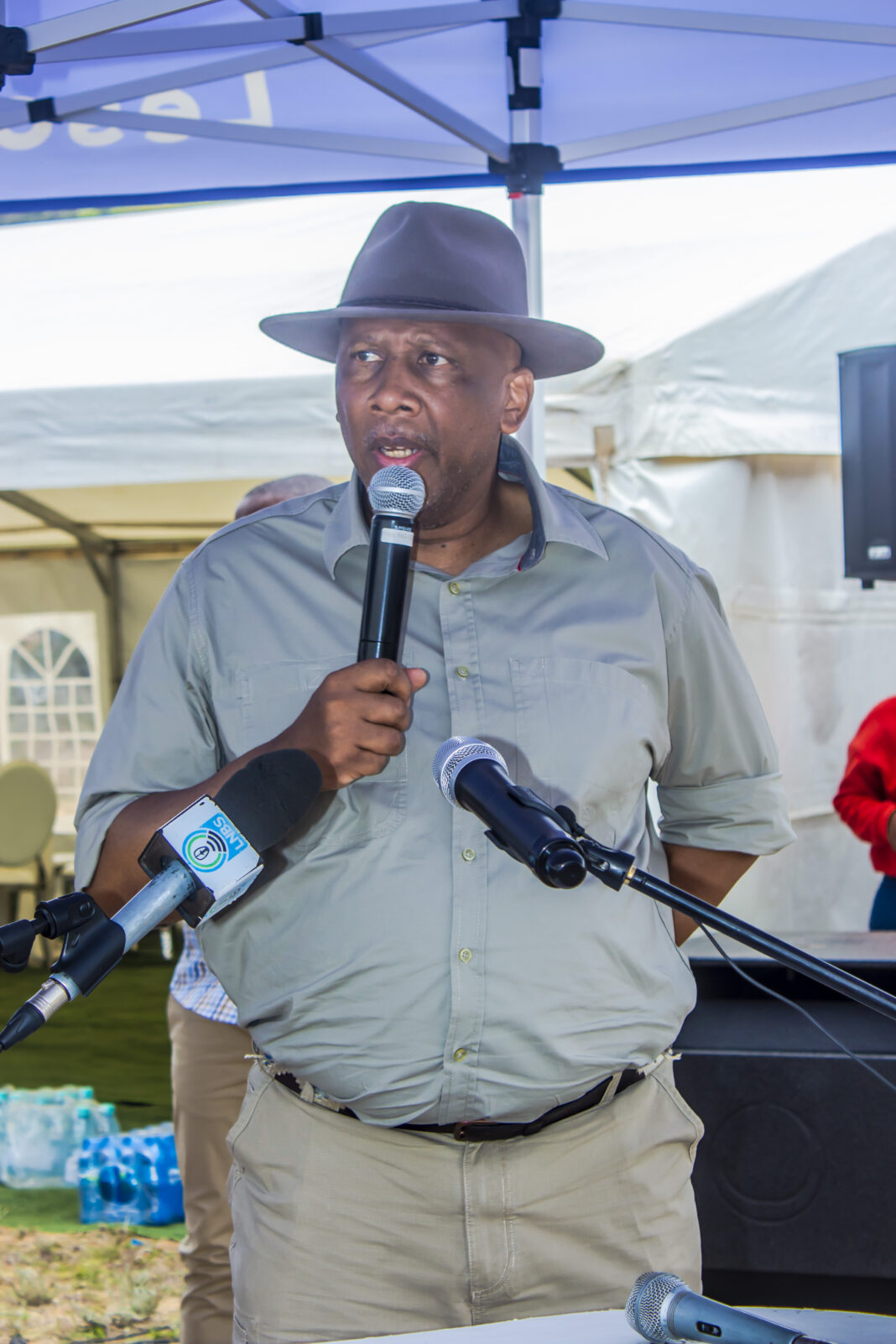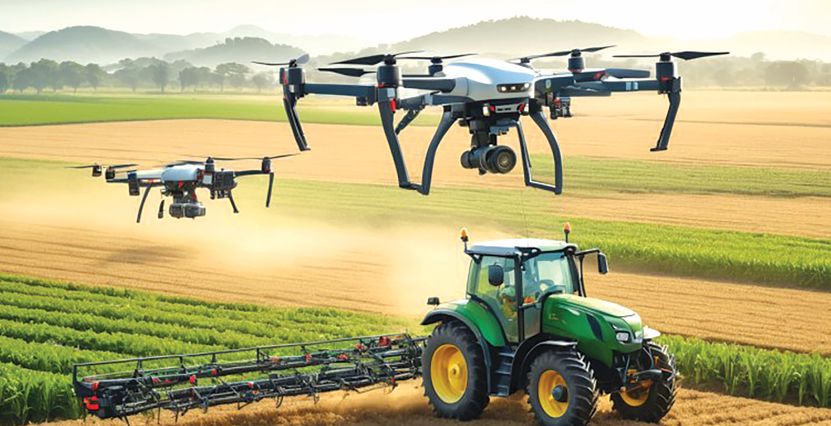By Kabelo Masoabi
Lesotho’s agricultural future hinges on effective water management, says His Majesty King Letsie III. Speaking at this year’s World Food Day celebration in Quthing, the King stressed the urgency of implementing sustainable irrigation systems to boost agricultural productivity and enhance food security.
His Majesty underscored that Lesotho, despite being rich in water resources, faces significant challenges in harnessing this potential to support farming.
He urged the Minister of Agriculture, Food Security, and Nutrition, Thabo Mofosi, to address water scarcity issues that continue to undermine agricultural output.
“We need to explore ways to bring water closer to farmers. It’s impractical to encourage farming without guaranteeing access to water. I understand your ministry has an irrigation policy, but it requires improvement and effective implementation. It needs to be carried out to benefit these farmers,” the King said.
His Majesty highlighted the growing impact of climate change on Lesotho’s agricultural landscape, pointing to extreme weather events such as heavy rains, strong winds, and prolonged droughts, which have become increasingly common and pose severe threats to farming communities.
“These adverse conditions challenge the livelihoods of our farmers and compromise the food security of our nation. We must adopt resilient farming practices and improve water management systems to safeguard agricultural productivity.”
Farmers echoed the King’s concerns. Manyakallo Phalima, a crop farmer from Qomoqomong, emphasised the critical role water plays in agriculture.
“Water is essential for irrigating crops, managing livestock, and maintaining farm operations. However, with increasing scarcity and environmental challenges, achieving optimal yields has become more difficult,” she said.
A recent study by the World Bank, titled “Lesotho Water Scarcity and Climate Assessment,” paints a complex picture of water management in Lesotho. Despite its water-rich highlands, the country remains vulnerable to recurring floods and droughts.
Lesotho’s water sector contributes approximately 10% to its gross domestic product (GDP), driven in part by the Lesotho Highlands Water Project (LHWP), which has attracted over US$3 billion in investments and generated nearly US$800 million in revenue since 1996.
“Lesotho’s challenge lies in balancing water exports with domestic needs,” said Marcus Wishart, Senior Water Resources Management Specialist at the World Bank. He added that to achieve its developmental goals, Lesotho must adopt an integrated, long-term approach to water management and climate adaptation.
The World Bank study highlights several critical investments and strategies to improve water security and agricultural resilience:
Integrated Water Infrastructure: Targeted investments in water infrastructure could enhance irrigation potential, boost food security, and support hydropower production without compromising regional water transfers.
Irrigation Expansion: Expanding irrigation by 12,000 hectares could significantly increase crop yields, adding between 70,000 and over 100,000 tonnes annually of maize, beans, peas, sorghum, and wheat. This would represent a 50% yield increase under favourable climate scenarios.
Resilient Water Supply Schemes: Developing interconnections between the LHWP and the Lesotho Bulk Water Supply Scheme (LBWSS) could enhance national water resilience and ensure a balanced allocation for domestic, industrial, and agricultural use.
The report underscores that agriculture in Lesotho is predominantly rain-fed, making it highly susceptible to climate variability. Expanding irrigation infrastructure is therefore vital for improving food security.
King Letsie III reinforced this message during the World Food Day celebration, urging all stakeholders to commit to long-term, sustainable water management practices.
“The benefits of such investments extend beyond food production. They enhance livelihoods, create job opportunities, and strengthen our economy.”
As Lesotho grapples with the dual challenges of climate change and food insecurity, King Letsie III’s call for sustainable irrigation practices serves as a rallying cry. His vision aligns with national and global efforts to secure water resources and promote resilient agricultural systems.
The government, in collaboration with international partners like the World Bank, has a unique opportunity to transform Lesotho’s agricultural landscape. By prioritizing sustainable water management and investing in modern irrigation, the country can build a robust agricultural sector capable of feeding its people and supporting its economy for generations to come.
Summary
- A recent study by the World Bank, titled “Lesotho Water Scarcity and Climate Assessment,” paints a complex picture of water management in Lesotho.
- Lesotho’s water sector contributes approximately 10% to its gross domestic product (GDP), driven in part by the Lesotho Highlands Water Project (LHWP), which has attracted over US$3 billion in investments and generated nearly US$800 million in revenue since 1996.
- By prioritizing sustainable water management and investing in modern irrigation, the country can build a robust agricultural sector capable of feeding its people and supporting its economy for generations to come.

Your Trusted Source for News and Insights in Lesotho!
At Newsday Media, we are passionate about delivering accurate, timely, and engaging news and multimedia content to our diverse audience. Founded with the vision of revolutionizing the media landscape in Lesotho, we have grown into a leading hybrid media company that blends traditional journalism with innovative digital platforms.







